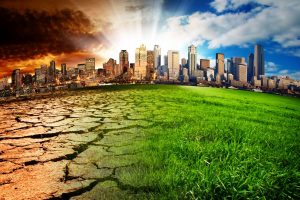The extraordinary killing of George Floyd has shocked the world beyond the frontiers of the United States of America, and direly significant must be the reported protests by Hispanics in Mexico City.
The enormity of the tragedy has resonated in the echo chambers in different parts of the world. On closer reflection, the murder of Floyd by a white policeman was not exactly exceptional in the US, albeit unprecedented.
There is today a spirited campaign within the country, one that does articulate sympathy for the blacks. George Floyd’s name is now known around the globe; his death has sparked protests from Berlin to Mexico City.
The extraordinary cruelty of his killing has shocked the world. But his death has resonated so widely not because it was exceptional, but because it was not. The toll of African Americans who have died at police hands is long and shameful. Quite the most critical international development over the weekend was the gathering ~ in spirited protest and equally spirited empathy ~ in London, Manchester, Cardiff, Glasgow and other parts of the United Kingdom.
In Bristol, protesters toppled a statue of slave trader Edward Colston. To the extent that Floyd’s killing has had its repercussion in Europe, South America and Africa, it can well be viewed through the prism of an international tragedy ~ in places as far apart as Rio de Janeiro and Buenos Aires; Abuja and Nairobi; in Barcelona, Copenhagen and Paris.
The rallies expressed solidarity and outrage that the richest and most powerful country in the world should continue to treat its people this way, rendering democracy at a discount six months before the presidential election. Crucially, the demonstrators across nations opposed the racial legacy it embodies, and the brutal, militarised police response to protests. In his response, Donald Trump has been feeble, even evasive, as he faces an ugly truth.
Sunday’s international demonstrations did honour the African American experience; they also recognised the common strand of black struggles elsewhere. More broadly, it is a fight for human rights. The words “I can’t breathe” are chillingly familiar. In Australia, they evoke the death of David Dungay, an indigenous man who uttered those words 12 times as he was restrained by prison guards.
In Britain, they were cried out by Jimmy Mubenga as security guards pinned the deportee to his plane seat. “The UK is not innocent,” read one placard at a London protest, invoking both its present and past. Britain prefers to remember its abolition of the slave trade to its role in industrialising slavery.
It completed paying the bill for reparations to slave owners only five years ago. Historically, the empire showcases a system of exploitation and white supremacy, with repercussions felt to this day.
The inbuilt prejudice against the colour of the skin is a common phenomenon across nations. The gatherings have been robust, but the possibility of the Covid-19 virus spreading is dangerously real. In their response to an international tragedy, the protesters have consciously taken the risk to preserve and protect the rights of man against the establishment, on occasion inhuman.












